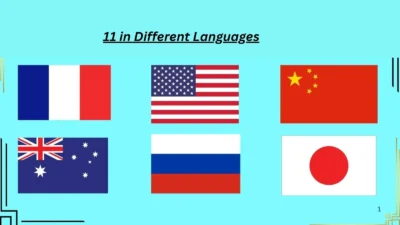When people search for trust in different languages, they are often looking for ways to express this powerful and universal concept across cultures. Some might need it for travel, literature, relationships, spiritual contexts, or even branding.
Trust is a word deeply tied to human connection, belief, and reliability—and knowing how it translates in various languages can help you use it meaningfully in conversations worldwide.
In this article, you’ll find translations of trust, hope, faith, believe, and related terms in multiple languages, along with explanations of their usage. By the end, you’ll understand not just how to say “trust,” but also how to use it naturally when communicating with others.
Trust in Different Languages List
Here are some common translations of the word trust across languages:
- French – Confiance
- Spanish – Confianza
- German – Vertrauen
- Italian – Fiducia
- Portuguese – Confiança
- Russian – Доверие (doverie)
- Greek – Εμπιστοσύνη (empistosýni)
- Latin – Fides
- Arabic – ثقة (thiqa)
- Hindi – विश्वास (vishwas)
- Chinese (Mandarin) – 信任 (xìnrèn)
- Japanese – 信頼 (shinrai)
- Korean – 신뢰 (sinroe)
- Turkish – Güven
Trust in French Language
In French, “confiance” is the most common word for trust.
- Example: J’ai confiance en toi → “I trust you.”
It can also mean confidence, so context matters.
Trust in Latin
The Latin word for trust is “fides”, which also translates to faith, loyalty, belief.
- Example: Fides est fundamentum amicitiæ → “Trust is the foundation of friendship.”
This root word is also where we get fidelity and faithful.
Trust in Greek Language
In Greek, trust is “εμπιστοσύνη (empistosýni)”.
- Example: Έχω εμπιστοσύνη σε σένα → “I have trust in you.”
It’s often used in personal and professional contexts alike.
Trusted in Different Languages
If you want to say trusted, here are some variations:
- French – Fiable
- Spanish – Confiable
- German – Zuverlässig
- Italian – Affidabile
- Portuguese – Confiável
These words are often used to describe reliable people or things.
Hope, Faith, and Believe in Different Languages
Because trust is closely tied to other meaningful words, here are some related translations:
Hope
- French – Espoir
- Spanish – Esperanza
- Italian – Speranza
- Greek – Ελπίδα (elpída)
Faith
- French – Foi
- Spanish – Fe
- Latin – Fides
- Arabic – إيمان (īmān)
Believe
- French – Croire
- Spanish – Creer
- German – Glauben
- Hindi – मानना (mānnā)
How to Use These Words
When traveling, writing, or connecting with people from other cultures, these translations let you:
- Express confidence in someone (“I trust you”).
- Discuss values and spirituality (“faith” and “belief”).
- Share encouragement (“hope”).
- Build stronger cross-cultural communication.
Trust is a concept that transcends language, but knowing the right word ensures your message is both respectful and accurate.
Conclusion
Whether you are learning languages, building international relationships, or simply exploring how universal values are expressed worldwide, understanding trust in different languages enriches your communication. From confiance in French to fides in Latin, every translation carries cultural depth. Use these words with care, and you’ll not only bridge language barriers but also build genuine human connections.



